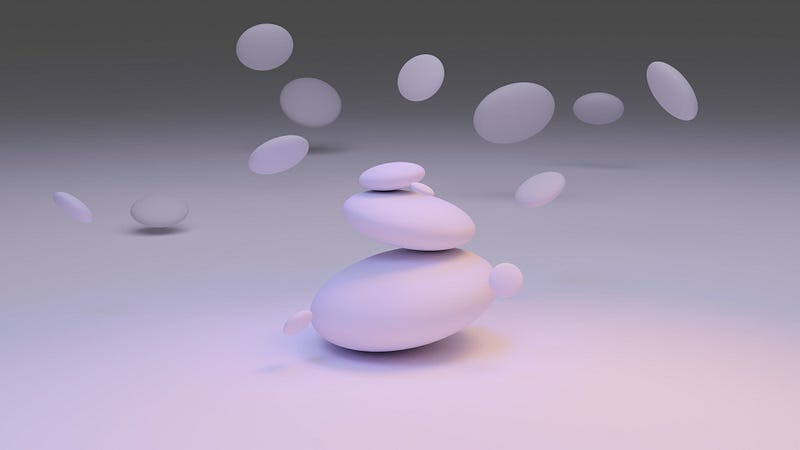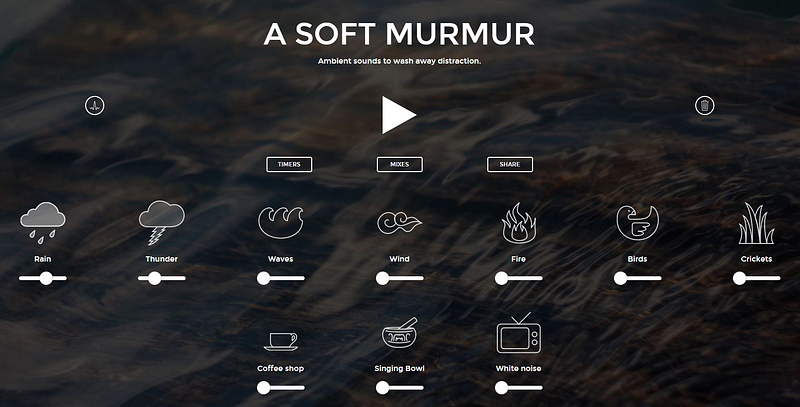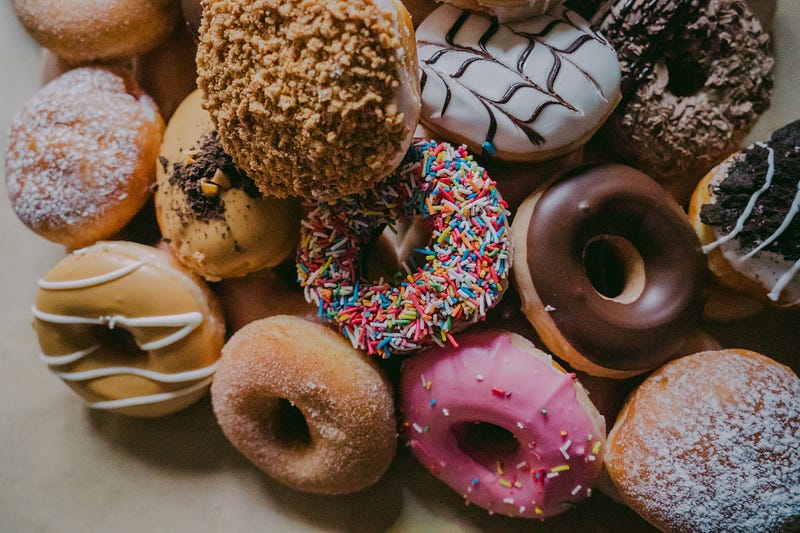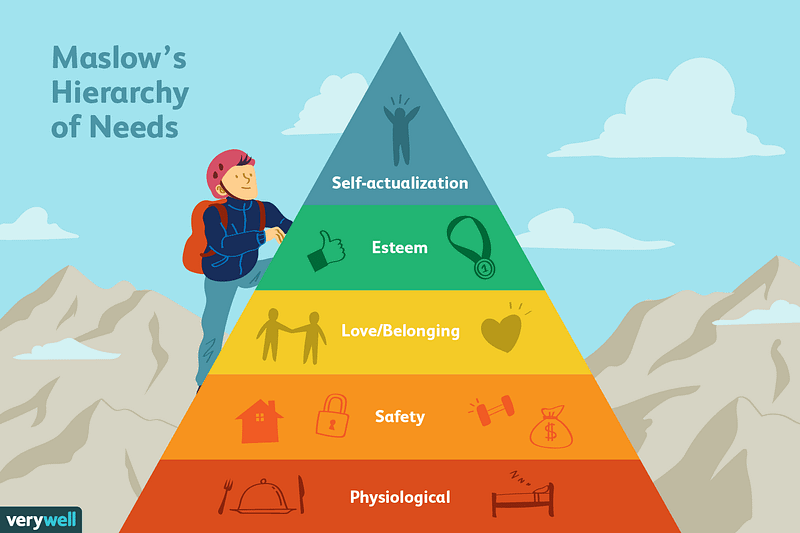To flow or not to flow

How can we describe a productive day? How many hours can we study in a week?
One of the hardest things to achieve is to be able to work hard over long periods of time. It is somewhat easy to start the journey of learning with a kind of enthusiasm or motivation. But, over the long run, it is hard to continue consistently.
Along the learning journey, we encounter two types of productivity. The stable one and the transient one.
The stable one continues over long periods of time while the transient one only lasts for short time intervals with the high enjoyment of the state of flow.
To flow or not flow
While being in a flow state has certain benefits, there are also many problems that arise when we constantly look for the state of flow.
The main problem is the limitation of the amount of cognitive power one can have in a single day. Therefore, it is not possible to spend the whole day in the flow mode.
The cognitive power limitation results in short periods of flow mode and long periods of the search for it. As we constantly search for the state of flow, we constantly waste time.

What if we never search for the state of flow?
While it is possible to be in the flow mode up to 4 hours on an average day, it is quite challenging to get to 6 or 8 hours. Of course, it is not impossible to achieve long hours of flow. But, when we force ourselves to flow, a problem arises in the following days like having less than the average flow for consecutive days.
The main problem of forcing ourselves to flow is that it is not sustainable over long periods of time.
From my current point of view, If one can not produce valuable results in any given 5 minutes of a period, then probably, he won’t be able to produce high-quality results over long periods of time either.
Therefore, rather than optimizing macro time intervals like an hour of study or half an hour of study, it is better to go deep and optimize every single minute of learning.
Micro Productivity
The optimization of micro study intervals lets us see that we can actually produce a much better outcome without never being in the state of flow.
The high productivity we achieve by repeating micro time intervals lets us form a disciplined way of reaching high productivity over long periods of time.
While it is hard to find ourselves having more than 4 hours of intense focus on average, with the micro productivity approach the average can easily be taken to 8 hours or more given the learner is willing to do anything on their way along the learning journey.
One of the bitterest parts of the discipline of productive micro time intervals is that there must not be any productivity lowering effects at any given moment.
Since we are trying to achieve micro-level productivity, our state should not be dependent on any volatile external influence. If any external volatility affects the person, then the stability over long periods of time becomes hard to achieve when the transient effect has no longer in place.
Here are some of the causes of the transient effects :
- Music
- Caffeine
- High blood sugar
- Low blood circulation
- Desire to entertain.
Music

While music has certain benefits like making the person entertain while studying, it also damages the person’s stability and productivity over time.
First things first, the music waves consist of the composition of a set of sound waves. When we listen to music, we are making the composing part of our brain busy. Therefore, we will be composing with low productivity while listening to music.
Also, even if you are doing physical activity, you get used to the heartbeat. When you later use your mental abilities, you will feel the need for music which will eventually drop your productivity tremendously.
“I found that listening to music while I code, impedes my concentration. Over time, I realized that listening to music, only feels like it improved my concentration, when actually, it divided my attention.
Programming is the act of arranging procedural elements, in sequence, selection and iteration. Music, is the arrangement of tonal and rhythmic elements in sequence, selection and iteration. It is logical, therefore, that programming and music use similar parts of the brain, and that listening to music, consumes resources, that the programming part of your brain requires.” Robert C. Martin

Caffeine
Caffeine is a great mood amplifier. But, it also creates an indispensable addiction. Therefore, it is serious to be aware of the implications of caffeine.
There is no doubt that some of us can be more efficient by consuming moderate amounts of caffeine. But take care. Caffeine also puts a strange “jitter” on your focus. Too much of it can send your focus off in very strange directions. A really strong caffeine buzz can cause you to waste an entire day hyper-focussing on all the wrong things.
Robert C. Martin
While caffeine makes one more productive in the following 4 to 6 hours, it also results in a tremendous productivity drop for the rest of the day. Also, the more we use caffeine, the lesser its magical effects lift one’s productivity.
The cost of taking caffeine is not only the drop in productivity on the day of consumption. Also, it creates a craving effect in the following days which also damages productivity. Therefore, one may arrive at the optimum way of creating stability by keeping himself away from caffeine.
“Long ago I suffered from heart trouble until I discovered that it was due to the innocent cup of coffee I consumed every morning. I discontinued at once, tho I confess it was not an easy task. In this way I checked and bridled other habits and passions and have not only preserved my life but derived an immense amount of satisfaction from what most men would consider privation and sacrifice.” Nikola Tesla

“A drastic, if not unconstitutional, measure is now being put thru in this country to prevent the consumption of alcohol and yet it is a positive fact that coffee, tea, tobacco, chewing gum and other stimulants, which are freely indulged in even at the tender age, are vastly more injurious to the national body, judging from the number of those who succumb…
These delicious beverages superexcite and gradually exhaust the fine fibers of the brain.”

High blood sugar
The problem with high blood sugar is that it creates transient boosts as well as a rapid drop in productivity once the effects have gone. Also, the drop in high blood sugar creates the illusion of feeling hungry or the need for more stimulants.
While there are certain benefits in the short periods after consuming high sugar foods, the damage it creates is huge both in terms of productivity perspective and the time it takes when consuming.
While the time it takes may not be seen much at the first glance, with micro optimization techinique’s careful observations, you may be doing this 5 to 10 times per day each with at least 5 minutes of cost.

Low blood circulation
Low blood circulation is often the result of a full stomach or the consumption of animal fat-heavy foods.
While this topic requires quite a bit of research, I can summarize my findings.
The more animal products you consume, the more likely you will feel less productive after meals because of the increased blood fat rate which results in low blood circulation in the following 6 hours.
Transitioning to a half or more vegetable-based diet lets you have no downtimes after having a meal, and helps you reduce the number of meals from three or more to only two while also letting you become highly productive even just after meals.
By introducing regular exercise as well as vegetable-heavy diets, you may well save an hour or more per day if you be careful enough.
Productivity Focused Simple Diet
Clear your mind with a stable functioning body.medium.com
Desire to Entertain

One of the biggest barriers as we study for long periods of time, our living conditions get better and better. While it may not look bad to you to have better living conditions, it is certainly degrading from the point of productivity.
The more you find yourself at the higher levels of Maslow’s hierarchy of needs, the more you will feel less productive.
Your brain thinks internally, why to waste time studying while having everything I need for my physiological, safety, belonging needs. Therefore, the brain will want you to spend your time more on entertainment rather than studying.
The solution to this problem is to keep yourself at the lowest parts of Maslow’s hierarchy of needs with own your hands.
Otherwise, you won’t feel like study, even if you try so hard you won’t find the motivation or the discipline to move even if you planned everything and you are willing to do anything, you will find yourself doing self-sabotaging activities.
بِسْــــــــــــــــــــــمِ اﷲِارَّحْمَنِ ارَّحِيم
“Indeed, your Lord knows, [O Muḥammad], that you stand [in prayer] almost two thirds of the night or half of it or a third of it, and [so do] a group of those with you…”
Surah Al-Muzzammil Verse 20

One of the elegant solutions to this problem is to sleep less than you need.
When you don’t sleep much, you will be able to commit to things that you wish to improve rather than wasting your time by entertaining yourself or by action faking.
Action Faking: Doing things that make you think you’re making progress when you’re not.
The other solution would be to eat less than you need. Likewise, all the solutions go for the less rather than more. Knowing less is more will help you find the other optimum solutions.
“We must all suffer one of two things: the pain of discipline or the pain of regret.”
Jim Rohn
Towards The End

While it is hard to prove any of the techniques that I have described, you can feel the difference when you prioritize stability over productivity. If you combine the stable way of working with the Pomodoro technique to keep track of your micro study sessions, you will see that over time the results are quite appealing.
If you are willing to do anything to achieve the highest productivity, you must surely let go of some of your tastes in your life. If you do, then you will probably get the rewards.
Also, as a side note, these points of productivity only matter after achieving +40 hours of focused study sessions per week. Below that barrier not many of these matter. But, when you want to go +60 hours, these points will guide you to achieve your goals.
